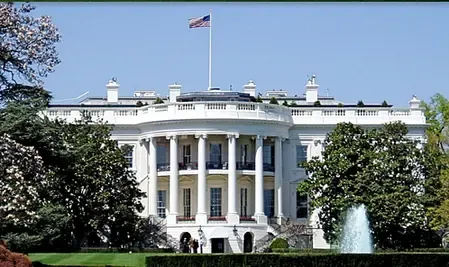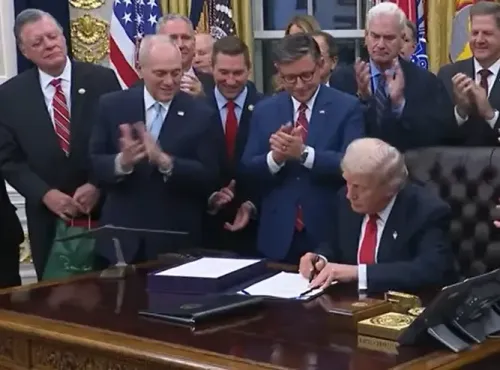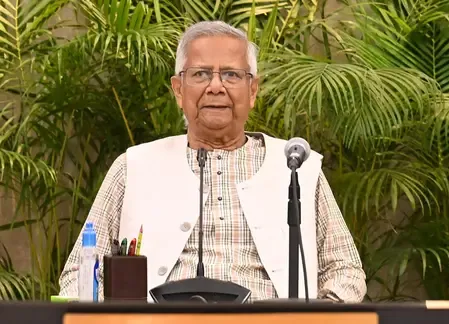Has the US Congress Really Ended the Longest Government Shutdown?

Synopsis
Key Takeaways
- The US Congress ended a 42-day government shutdown.
- The resolution passed with a vote of 222 to 209.
- Most government agencies will be funded through the end of the year.
- Federal employees will receive full pay for the shutdown period.
- Political divides remain a concern for future negotiations.
New York, Nov 13 (NationPress) The US Congress has ultimately voted to conclude the government shutdown after a staggering 42 days of operational paralysis.
The House of Representatives cast a vote of 222 to 209, predominantly along partisan lines, to approve the resolution that had already been sanctioned by the Senate to temporarily finance the government until the year’s end.
This legislation now heads to US President Donald Trump, who the White House indicated would sign it later tonight.
The bill that puts an end to the longest government shutdown was passed without the Democrats securing the extension of Obamacare, the health insurance scheme initiated during former President Obama’s administration. It also did not include measures to prevent the substantial cost increases anticipated for participants in the program starting next year.
The Democrats had stalled the measure in the Senate, where a procedural rule necessitates 60 votes to bring the legislation to the floor.
Despite the Republicans holding a slim majority in the Senate, they fell short of the 60 votes and ultimately relied on the support of eight Democratic defectors to achieve that threshold on Sunday.
The bill smoothly passed through the Senate on Monday, and the House, which was in recess, was quickly reconvened on Wednesday for its approval.
In the House, six Democrats sided with the Republican majority, while two Republicans opposed it.
The shutdown had a wide-ranging impact on government services, affecting everything from air travel to food assistance programs for the impoverished.
The standoff between Trump and the Democrats showcased a battle of wills, with Trump and his party unwilling to concede to the Democrats regarding Obamacare, while the Democrats remained steadfast.
This impasse may have contributed to losses for the Republican Party in recent elections, a fact acknowledged by Trump. However, it also adversely affected Democratic supporters who work for the federal government and were not receiving their salaries, along with those in need of government aid.
Frustration among some Senate Democrats eventually led to a decision to end the shutdown.
This decision has caused a divide within the party, with several members criticizing Senate Leader Chuck Schumer for failing to avert defections.
Under the newly adopted legislation to conclude the shutdown and fund the government, most agencies will receive funding through the end of the year, with a few extending until January 30.
All government employees, including those who remained off work during the shutdown, will be compensated fully for the duration of the shutdown and will be permitted to return to their positions.
Even with all federal employees back at work, it will take several days for the government to completely resume all operations.
Before the vote, Speaker Mike Johnson remarked, “On the Republican side, we operated in good faith. We need to get this government open as quickly as possible.”
In a defiant statement, Democrats’ House leader Hakeem Jeffries declared, “Either Republicans finally agree to extend the Affordable Care Act (Obamacare) tax credits this year, or the American people will remove Republicans from their positions next year.”









